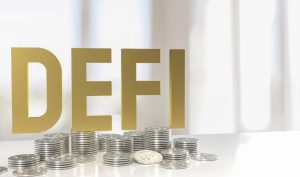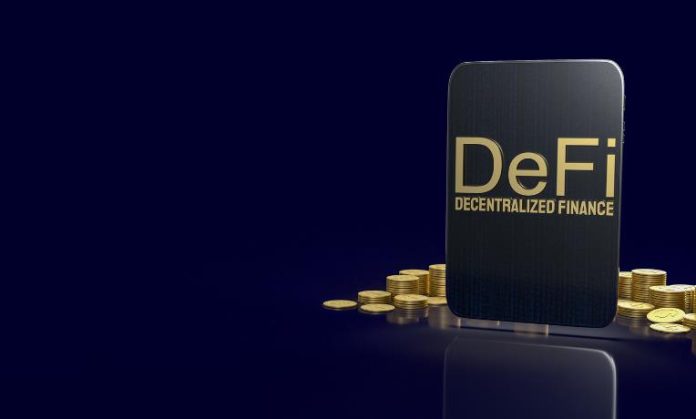Table of Contents
Decentralized Finance, commonly known as DeFi, marks a seismic shift in the financial landscape, moving us away from traditional, centralized financial systems. It represents a novel paradigm where financial products and services operate on decentralized networks, primarily blockchain. This groundbreaking approach to finance promises to democratize financial services, making them more accessible, efficient, and secure. But what exactly is DeFi, and how is it changing the rules of the financial game?
The Mechanics of DeFi: How It Works?
At its core, DeFi utilizes blockchain technology and smart contracts to create a system where financial transactions are not governed by intermediaries like banks or brokers. Instead, they occur directly between parties.

This peer-to-peer model is underpinned by blockchain’s immutable and transparent nature, ensuring security and trust in transactions. Smart contracts, self-executing contracts with the terms of the agreement between buyer and seller directly written into code, play a crucial role.
They automatically execute, control, or document legally relevant events according to the terms of a contract or an agreement, making processes faster and reducing the potential for human error.
Applications and Benefits of DeFi
The applications of DeFi are vast and varied, ranging from lending and borrowing platforms to stablecoins and decentralized exchanges (DEXs). For instance, a crypto portfolio management platform like HEXN leverages DeFi to offer enhanced security and autonomy in managing digital assets.
These platforms provide users with control over their financial destiny, free from traditional banking constraints. The benefits of DeFi extend beyond accessibility; they include improved transparency, enhanced security, elimination of intermediaries, and increased efficiency in financial transactions.
Challenges and Risks in DeFi
While DeFi brings numerous advantages, it is not without its challenges and risks. The primary concerns revolve around regulatory uncertainty, the nascent stage of the technology, and security risks. Since DeFi operates in a largely unregulated environment, it poses risks like smart contract vulnerabilities and the potential for financial crimes.

Moreover, the complexity of DeFi platforms can be daunting for average users, potentially limiting widespread adoption. Additionally, the volatility of cryptocurrencies, which are often integral to DeFi systems, adds another layer of risk for users.
This volatility can lead to significant financial losses, especially for those who are not well-versed in the market dynamics. There’s also the issue of limited user recourse in case of errors or fraud, given the absence of centralized authority or insurance mechanisms typically found in traditional finance.
The Future of DeFi: Potential and Predictions
The future of DeFi is as exciting as it is uncertain. With the rapid pace of technological advancements and growing interest from institutional investors, DeFi is poised to significantly disrupt the financial sector. However, for DeFi to realize its full potential, issues related to scalability, interoperability, and regulatory compliance must be addressed. As these challenges are gradually overcome, we can expect DeFi to play a pivotal role in shaping the future of finance.
Conclusion: Embracing the DeFi Revolution
Decentralized Finance presents a compelling vision for the future of financial services – one that is more inclusive, efficient, and transparent. As we stand at the cusp of this financial revolution, it’s crucial to understand the transformative potential of DeFi, along with its risks and challenges.
By embracing this new frontier with a balanced approach, we can harness the power of DeFi to create a more equitable and efficient financial ecosystem. The question that remains is not if, but how quickly and effectively we can integrate DeFi into the mainstream financial fabric to reap its myriad benefits.


